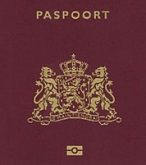 The Netherlands and Canada has announced the launch of a pilot project for paperless travel between the two countries. Identity data that is usually stored on a chip on a passenger’s passport will instead be securely stored and encrypted on their mobile device. Passengers flying from Montreal to Amsterdam will be able to manage their encrypted identity data, consenting to share it with border authorities, airlines and others. It would be checked against biometrics at security checkpoints and airplane boarding gates “without the need for a physical passport,” said a statement by the World Economic Forum, which is leading the initiative. The Traveller Digital Identity project is to be tested internally throughout 2019, with the first end-to-end paperless journey expected to take place in early 2020, it said. “By 2030, international air travel is expected to rise to 1.8 billion passengers, up 50 per cent from 2016. With current systems, airports cannot keep up,” the World Economic Forum’s mobility chief Christoph Wolff said.
The Netherlands and Canada has announced the launch of a pilot project for paperless travel between the two countries. Identity data that is usually stored on a chip on a passenger’s passport will instead be securely stored and encrypted on their mobile device. Passengers flying from Montreal to Amsterdam will be able to manage their encrypted identity data, consenting to share it with border authorities, airlines and others. It would be checked against biometrics at security checkpoints and airplane boarding gates “without the need for a physical passport,” said a statement by the World Economic Forum, which is leading the initiative. The Traveller Digital Identity project is to be tested internally throughout 2019, with the first end-to-end paperless journey expected to take place in early 2020, it said. “By 2030, international air travel is expected to rise to 1.8 billion passengers, up 50 per cent from 2016. With current systems, airports cannot keep up,” the World Economic Forum’s mobility chief Christoph Wolff said.
This project offers a solution. By using interoperable digital identities, passengers benefit from a holistic system for secure and seamless travel. It will shape the future of aviation and security.” Air Canada and KLM Royal Dutch Airlines, as well as airports in Montreal, Toronto and Amsterdam are taking part in the pilot, backed by technology companies Accenture, Vision Box and Idemia
Breaking News
- Sikkim to kick off 13th ITM from today, aims to transform Northeast into global tourism hub
- Jastans Bespoke Luxury Vacations wins ‘Upcoming Luxury and Experiential Travel Company’
- 2025 has been a landmark year for McArthurGlen; Indian shoppers drive 7% growth
- AI not just add-on; it’s become the nervous system that holds everything together: Dhruv Shringi
- We are expanding tech and data-enabled transformation: Mugdha Sinha, MD, ITDC
- Saudi to link tourist visas to credit cards for Indian travellers: CEO Fahd Hamidaddi
- Indian Travelers Show Growing Interest: New Insights Reveal Who’s Visiting Kissimmee and Why
- Ashutosh Jayee appointed as General Manager at Ramada Plaza, Vijaypur, Jammu
- India becomes the second-largest country by tourist arrivals in Moscow in the first half of 2025
- Travel takes centre-stage as ‘holiday expo’ opens in Visakhapatnam
- Singapore Airlines unveils new First Class SilverKris Lounge at Changi Terminal 2
 Tourism Breaking News
Tourism Breaking News


